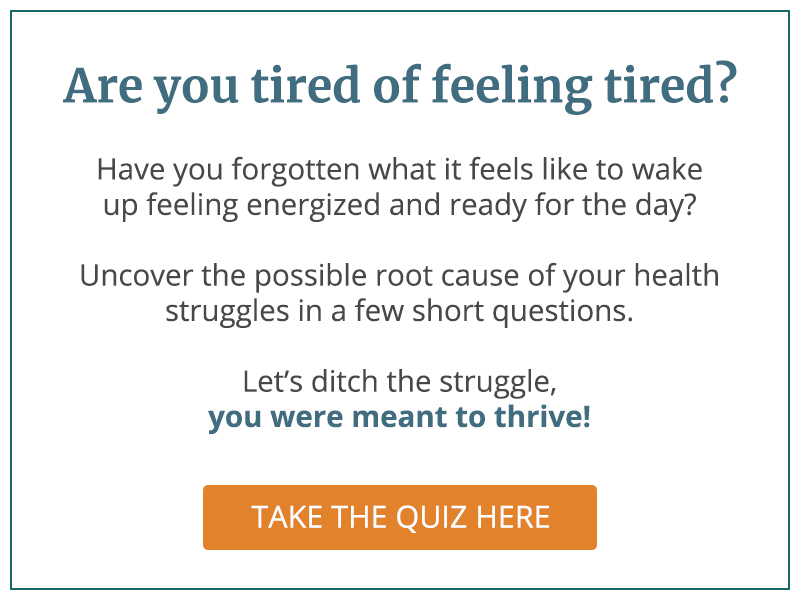If I were to ask you if you wanted to be stressed, you would very likely give me a resounding “no” as an answer.
And yet, we seem to have a difficult time letting go of stress. In many ways, we glorify it as a society. We overextend our schedules, under prioritize rest, and forget to spend time in nature or meditate regularly — both completely free and proven ways to lower stress levels by the way.
But minimizing stress in our lives is critical for optimal health.
Why? Because modern science is just now beginning to prove what ancient health systems like Ayurveda have taught for thousands of years — that stress leads to disease.
1. Stress can cause heart disease
Along with the usual culprits of diet and exercise, heart disease can also be caused by stress.
Sometimes, in more severe cases, traumatic news instantly causes a heart attack, a condition known as broken-heart syndrome. If ever there was clear evidence of a mind-body connection, this is it.
Researchers theorize that stress increases inflammation, which in turn increases the likelihood of developing heart disease. It’s also possible that people turn to unhealthy coping mechanisms like smoking, alcohol, or fast food when faced with stressful situations.
Stress causes the release of adrenaline which is known to raise blood pressure and heart rate. When stress is experienced on a long term basis, the effects on heart health are devastating.
One thing is clear for sure, we need to avoid stress as much as possible to keep our hearts happy and healthy.
2. Diabetes and stress
Another disease that can stem from stress is diabetes.
When the body is under stress, the stress hormone cortisol is released. When the body is flooded with cortisol in response to a stressful situation, all other bodily functions get put on the back burner to deal with the stress at hand.
When the body decides to devote all of its energy to address the stressor, cortisol inhibits insulin production. When this process happens over and over again, insulin resistance sets in, and that’s when trouble starts.
Insulin resistance is the precursor to diabetes. It can be a difficult situation to remedy because there are often times few obvious symptoms. Plus, the condition can trigger weight gain, high cholesterol, and fatigue which only serve to make insulin resistance even worse. It’s a circular pattern that requires intervention and treatment as soon as it’s discovered.
3. How stress can manifest autoimmune diseases
Recent studies have suggested that there is a connection between stress and autoimmune disease as well.
In one large study, people that were diagnosed with a stress-related disorder were found to be more likely to be diagnosed with not just one, but multiple autoimmune diseases.
Researchers theorize that a change in gut microbiota as a result of stress could be the link between stress and autoimmune disease.
Whatever the main causal link between the two, it’s clear that stress-reduction techniques can help manage autoimmune conditions.
Ways to reduce stress in your life
Look, I know that it’s easier said than done to reduce stress. Sometimes stressful life events that are beyond our control happen. Jobs get downsized, marriages fail, and children become ill.
But there are ways to train yourself to handle stress more effectively so that it doesn’t affect you quite so much. There are times that we can re-evaluate our priorities and as a result, leave some stress out. Ultimately, in many ways, stress is something that we choose. So the good news is, we can intentionally choose to reduce it as well.
Here are some of the ways I encourage patients to reduce their stress levels. Not everyone can implement all of these ideas at once, and I understand that too. It’s best in fact, if you start making small changes, one at a time, until you master the art of lower-stress living.
I recommend:
- Meditation — Meditation helps the body and mind to reduce stress. It’s also a great habit to have in your back pocket when stressful situations arise. If you can clear your mind at will, you can achieve a stress-free state upon command.
- Exercise — Exercise, especially gentle exercise like walking or yoga can help reduce stress levels immensely. Daily exercise habits have been shown to improve health in many ways, and stress reduction is one of them.
- Listen to music — Listening to music can have a direct, calming effect on our stress levels. Many people find that slow instrumental music soothes them instantly.
- Embrace a spiritual practice — I talk about this more in-depth in my best-selling book, Built to Thrive, but the benefits of embracing a spiritual belief and participating in its practice have been proven to improve health and increase lifespan.
- Spend time in community — Strong societal bonds and their positive effect on health have been well documented. When looking for ways to decrease stress, be sure to include quality time with family and friends whenever possible. And don’t be afraid to ask for help from them, either. Allowing others to share our burdens reduces stress and strengthens relationships.
- Spend time in nature — The stress reduction benefits of spending time in nature have been well studied and are significant. Even just 20 minutes in the woods can lower blood pressure.
- Take a break from social media and/or the news — Being well informed is definitely not a bad thing, but in today’s highly colorized news media, it’s almost impossible not to get stressed out by its presentation. And the constant connections we indulge in on social media aren’t always ideal for well being either. Don’t be afraid to unplug, even if it’s temporary.
I believe that you have the power to heal your life. Your thoughts, emotions, and ultimately your health are largely within your control. Although I am a doctor, you are the healer.
For the most part, stress is something we choose. Spend some time really evaluating the ways that you can cut stress from your life and replace it with more of the practices above. Your body and mind will thank you, and as your partner in your healthcare journey, I thank you too.
References
“Stress – management: leads from Ayurveda. – NCBI.”
“Ayurveda: A Brief Introduction and Guide.”
“Life Event, Stress and Illness – NCBI.”
“Heart disease – Mayo Clinic.” 22 Mar. 2018,
“[Acute Stress and Broken Heart Syndrome. A Case … – NCBI.” 7 Oct. 2016,
“Cortisol | Hormone Health Network.” 1 Nov. 2018,
“Association between Higher Serum Cortisol Levels … – NCBI.” 18 Nov. 2016,
“Stress as a trigger of autoimmune disease. – NCBI.” 29 Nov. 2018,
“Association of Stress-Related Disorders With … – NCBI.” 19 Jun. 2018,



